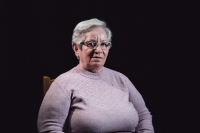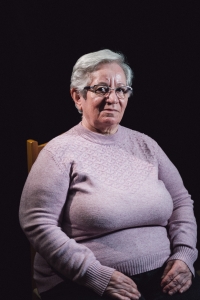She helped build the Ohel David Jewish Retirement Home

Stáhnout obrázek
Judita Haasová, nee Perlová, was born in 1947 in Komárno and grew up in Svätý Peter. The grandfather was a rabbi. She did not know most of the family, they died in a concentration camp during World War II. Her mother, who came from a sales family, was a primary school teacher. The father lost his parents and his first family during the war. He was a baker and had two employees. They took their bakery during nationalizing. Her father worked as a manager at a state bakery. He was honored for his liberation assistance. He was a member of the Communist Party, later was disappoint. Aunt Frida emigrated to Israel, her father‘s cousin to Canada. The family moved to Komárno after the flood in 1965. In 1966 she graduated at the Secondary Medical School in Nové Zámky. She was a member of the Slovak Youth Union. After graduating at medical school, she worked for seven years in the ophthalmology department in Komárno. In 1971 she went to Galanta, where she worked at the polyclinic. She was the chairwoman of the unions. She later worked in a retirement home. She helped build the Ohel David Jewish Retirement Home in 1996 and worked there as a head nurse. When she retired, she became the vice-president of the Jewish religious community in Komárno. She has a daughter and a son.

